Collaboration between medtech start-up Yumen Bionics and Samenwerkende spierfondsen. partly founded by Creative Industries Fund NL.
Wearables have proven itself to be an excellent tool to facilitate at home clinical trials and remote monitoring. Researchers gain valuable data using these wearables. But what do the users need during a remote clinical trial?
Especially for children it is difficult to understand why you need to do things today that are beneficial at a later moment. The effort of wearing the wearable is always in the present moment. However, the outcomes of the gathered data, such as the approval of a new drug, is often after years or even for the next generation. Simultaneously the COVID-19 crisis started and hospitals were questioning:
What if these vulnerable patients aren’t able to come to the hospital for the upcoming 5 years?
March 2020, start of COVID-19 crisis
How can we facilitate at-home clinical trials?
There was a strong need within the Duchenne community to investigate how we could add value for the wearer during these clinical trials at home: Project Maku.
Duchenne Muscular Dystrophy (DMD) is a genetic disorder that causes muscle degeneration, it primarily affects boys. It is a rare disease, in the Netherlands about 1 in 4000 newborn boys are diagnosed with Duchenne. Currently, there is no cure for DMD, but with medication and therapy the symptoms can be managed and potentially slow the course of the disease. Therefore clinical research is very important.
When you want to design from the perspective of the user, you need to design WITH the user.
In co-creation with boys and men with Duchenne we developed a wearable that measures arm movement and EMG as well as an accompanying app to give them insight in the data during the clinical trail. In total we asked 8 boys to contribute to the design of the wearable and accompanying app.
The wearable is intended to be used by boys from 10-16yrs old, when walking is no longer possible but arm function still remains good.
We used interviews at different moments during the project, first we investigated their day-to-day experiences with the disease and how clinical trials currently are arranged. From here on design started in co-creation with one of the men with Duchenne, Justus Kuijer. At every important decision milestone we got back to the boys to give us direction.
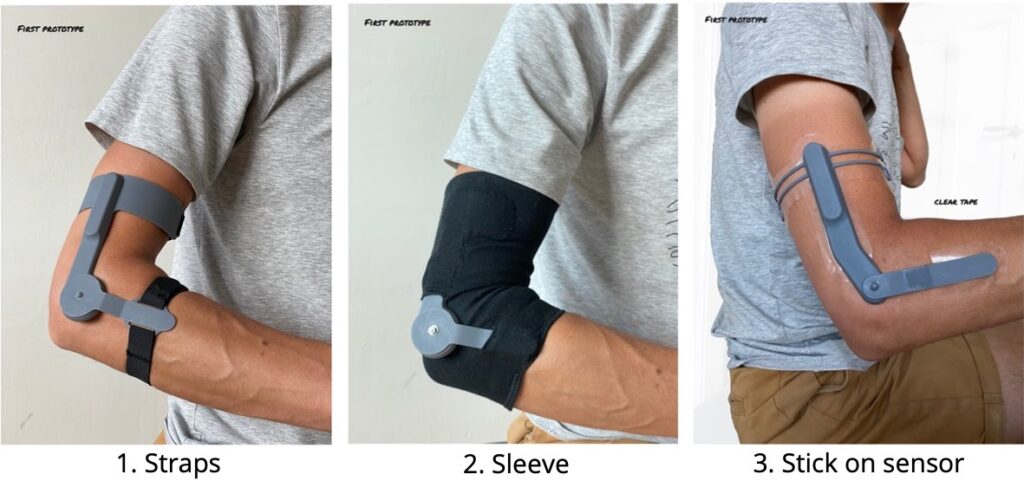
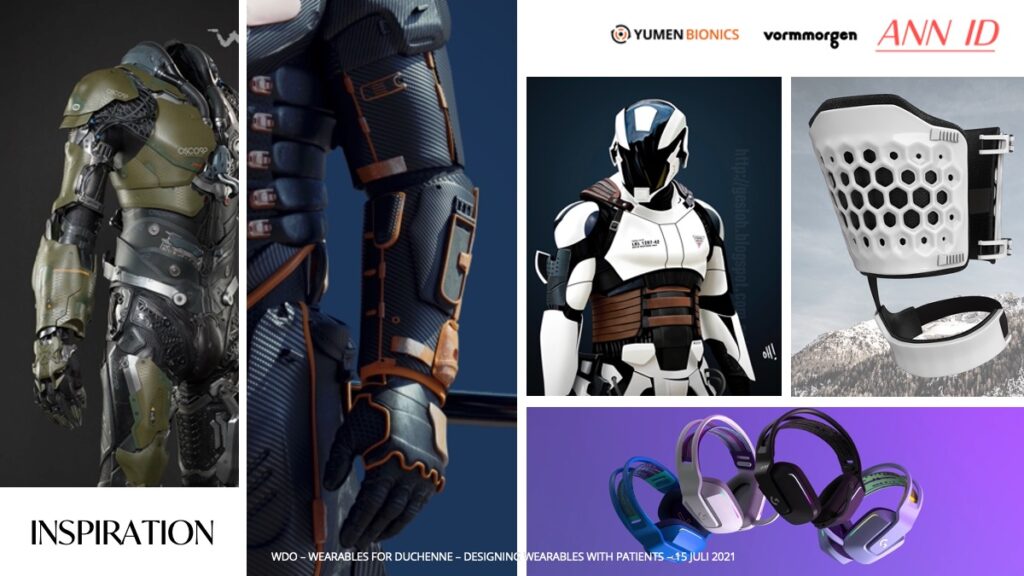
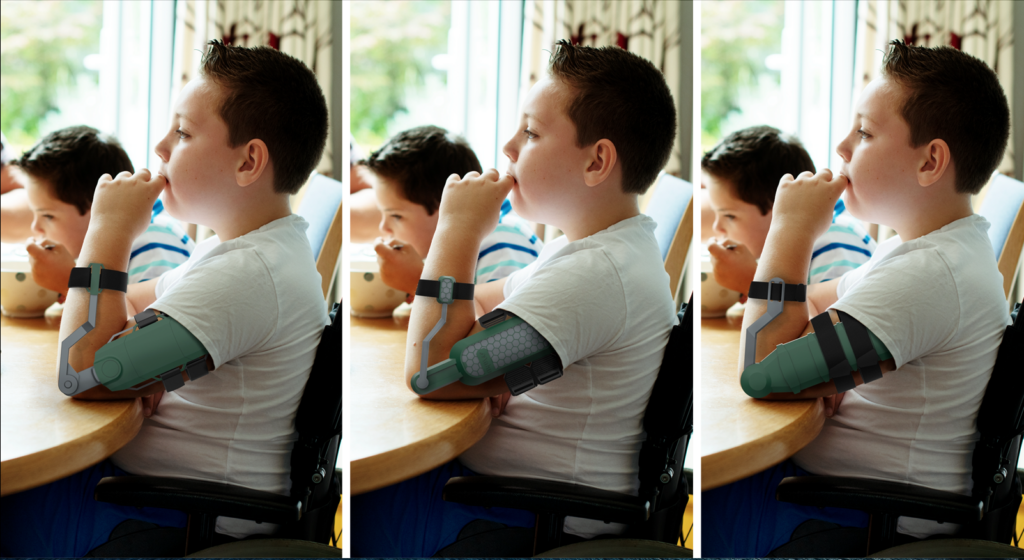
The wearable makes the boys feel proud of their contribution to clinical research.
Manage day-to-day trial activities and get realtime insight into the data.
Participating in a trial at home during daily life reduces the pressure of having to perform in a test and the burden of visiting a hospital. However, we need to deal with uncertainties: Am I doing it correctly? Is the wearable working? Am I actually gathering data? And parents asked: Can you help me to arrange the practicalities around a test-day? How to remember when? What do I need to prepare?
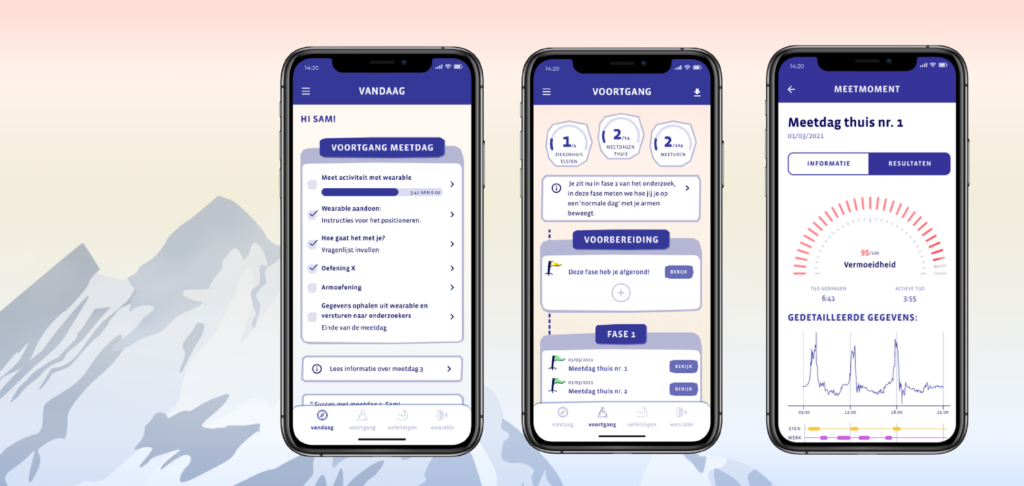
The boys picked the metaphor of ‘mountain climbing’ as a fun and motivating challenge for all exercises and tasks during the clinical research. Your digital avatar represents a mountain climber, and with every phase of the research you are moving yourself towards the end goal: Adding your gold flag to the mountain.
Also here, the design, colours and even the graphs used in the data representation are chosen and designed by boys with Duchenne.
“Instead of creating a wearable that is ‘less horrible to wear, we created a wearable that is appealing to boys with Duchenne ”
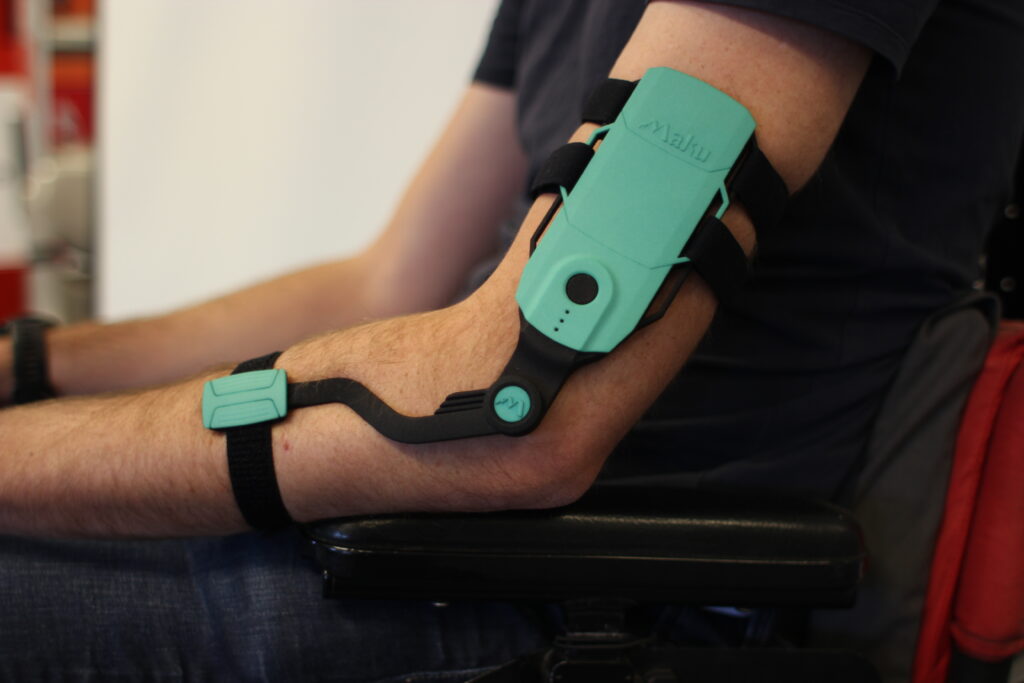
Key take-aways
- Think about the value of the patient today.
- Nobody wants to wear a wearable that makes you look different than others.
- How can we reduce insecurities in clinical trials at home?
- For DMD we can make a wearable that looks cool. However this approach is not directly transferable to other diseases.
Awards & presentations
- Creative Industries Fund NL: An independent jury consisting of Martine Zoeteman (architect, chairman Ducht Creative Residency Network and advisor Raad voor Cultuur), René Post (researcher and entrepreneur on digital culture, Yassine Salihine (designer and lecturer design research KABK), Marieke Rietberger (founder Desing Innovation Group) selected project make as one of the 8 proposals from a total of 42 applications for the phase 1 grant.
“The selected project of studio AnnID, lead by Anneke van Abbema, shows a practical design solution in which she will develop a wearable in collaboration with Samenwerkende Spierfondsen and Yumen Bionics that not only collects data for scientific research but will also look into a way to make this data valuable for the patient.” In 2020 we also received funding for the 2nd round of the project. - Wear-it summit Berlin: Wear-it Summit is an international event on wearables and accompanying services. In a lightning talk we explained how you can involve patients in the design of wearables. Also within the Wear-it summit this was a unique point of view. Most other speakers talked about the development of new technologies, however the market value and designing from a deep understanding of user needs is underexposed.
- Imelda de Groot Award 2021: The ‘Dr Imelda de Groot’ is an annual award for an individual, group or institution for the best project or achievement in the field of rehabilitation (in a broader sense) for Duchenne and Becker Muscular Dystrophy. This award is an initiative of the foundation Duchenne Parent Project Foundation, the Netherlands. The winner, chosen by a jury consisting of experts, including patients, receives, in addition to the honor, € 10,000 to spend on this type of research.
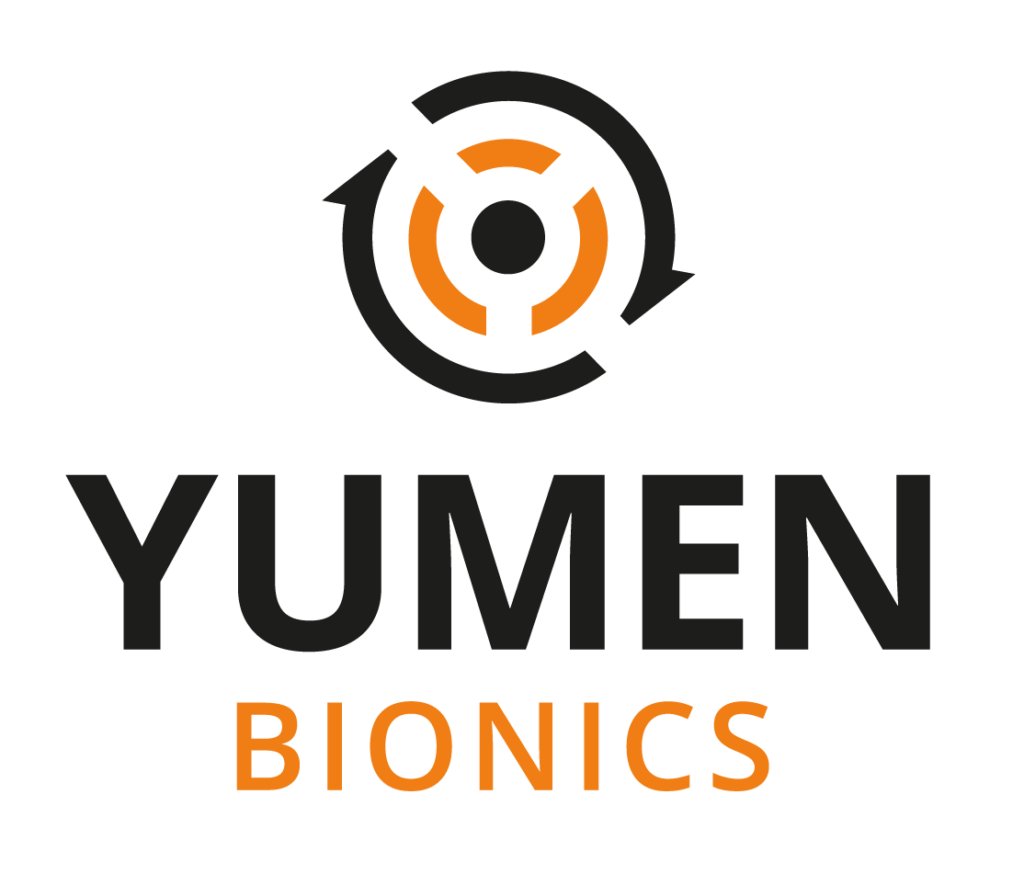
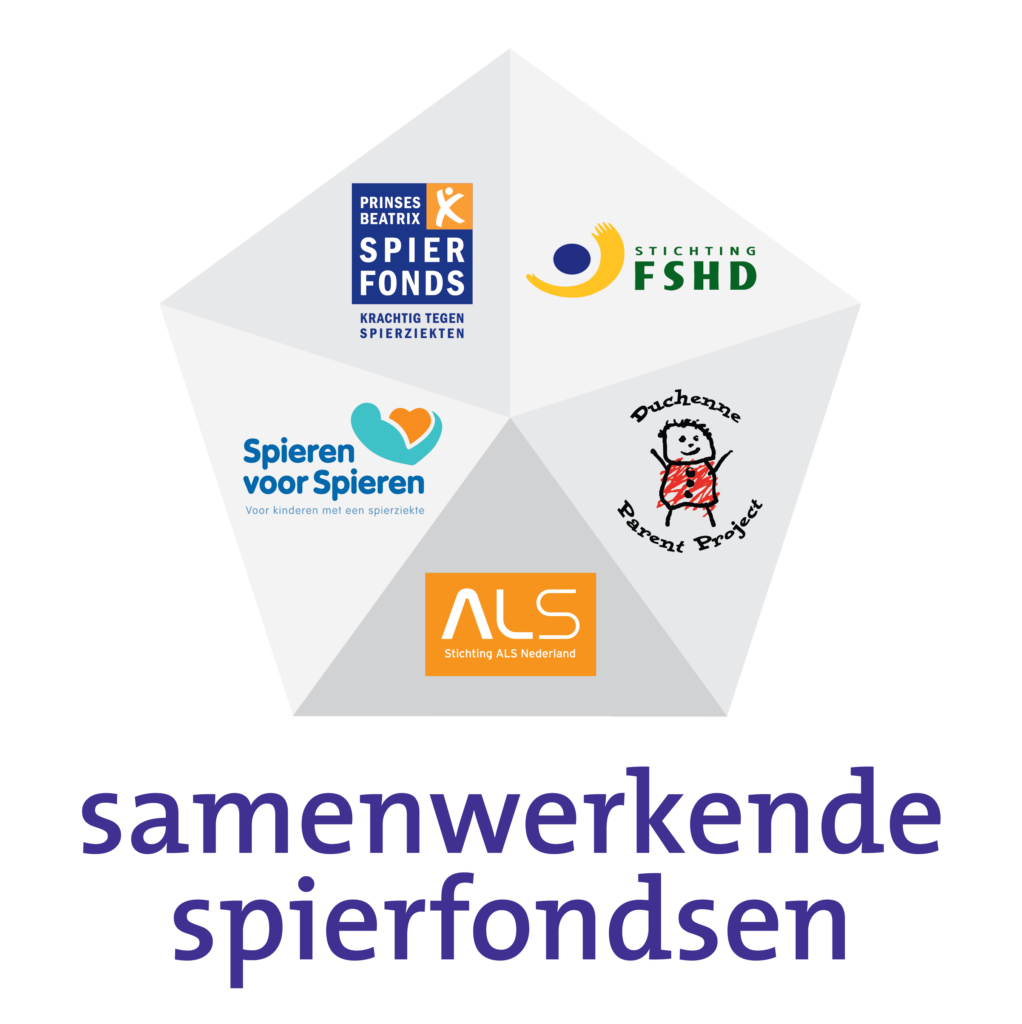
Partially funded by:

Date
2019-2022
Project Partners
Yumen Bionics, Samenwerkende Spierfondsen
